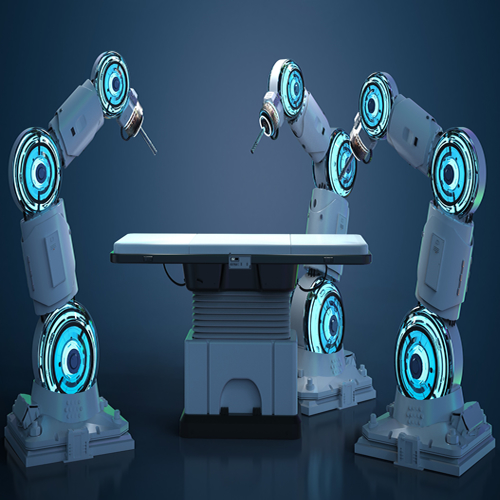Key points from article :
A new wave of robotic surgery could transform operating theatres in the UK, with Health Secretary Wes Streeting promising that by 2035, 90% of laparoscopic (keyhole) surgeries will be robot-assisted. Traditional laparoscopic surgery already reduces scarring and speeds recovery compared to open procedures, but it remains difficult and counterintuitive, requiring surgeons to operate using 2D cameras and mirrored movements. Robot-assisted surgery (RAS) could make these procedures safer and more precise, as machines can eliminate tremors and offer detailed 3D visualisation.
The best-known system, the Da Vinci robot developed by U.S. company Intuitive, has been in use since the early 2000s and now operates in around 200 UK hospitals. It allows surgeons to control robotic arms from a console, performing intricate movements through tiny incisions. Studies show RAS leads to reduced blood loss, shorter hospital stays, and less post-operative pain. However, its high cost—about £1.6 million per unit—limits widespread adoption, and critics argue that the benefits over traditional laparoscopy are not yet backed by enough independent research.
Challenging Da Vinci’s dominance is British firm CMR Surgical, co-founded by Dr. Mark Slack, a former head of gynaecology at Addenbrooke’s Hospital. CMR’s robot, Versius, introduced in 2019, is smaller, lighter, and more flexible, with separate arms that can be easily moved or stored. Slack claims Versius simplifies training dramatically, allowing even novices to master complex surgical tasks in hours rather than days. The company is also developing AI-based systems to provide real-time guidance and error prevention during operations.
Still, debate continues over whether investing in robots is the right move for an NHS under financial strain. Some surgeons, such as Timothy Rockall, argue that hospitals should prioritise staff training and recruitment over costly machines that may not significantly reduce waiting lists. Yet for advocates like Slack and Streeting, robotic systems represent the next frontier in surgical care—tools that could help standardise high-quality surgery and bring precision medicine to more patients across the UK.



